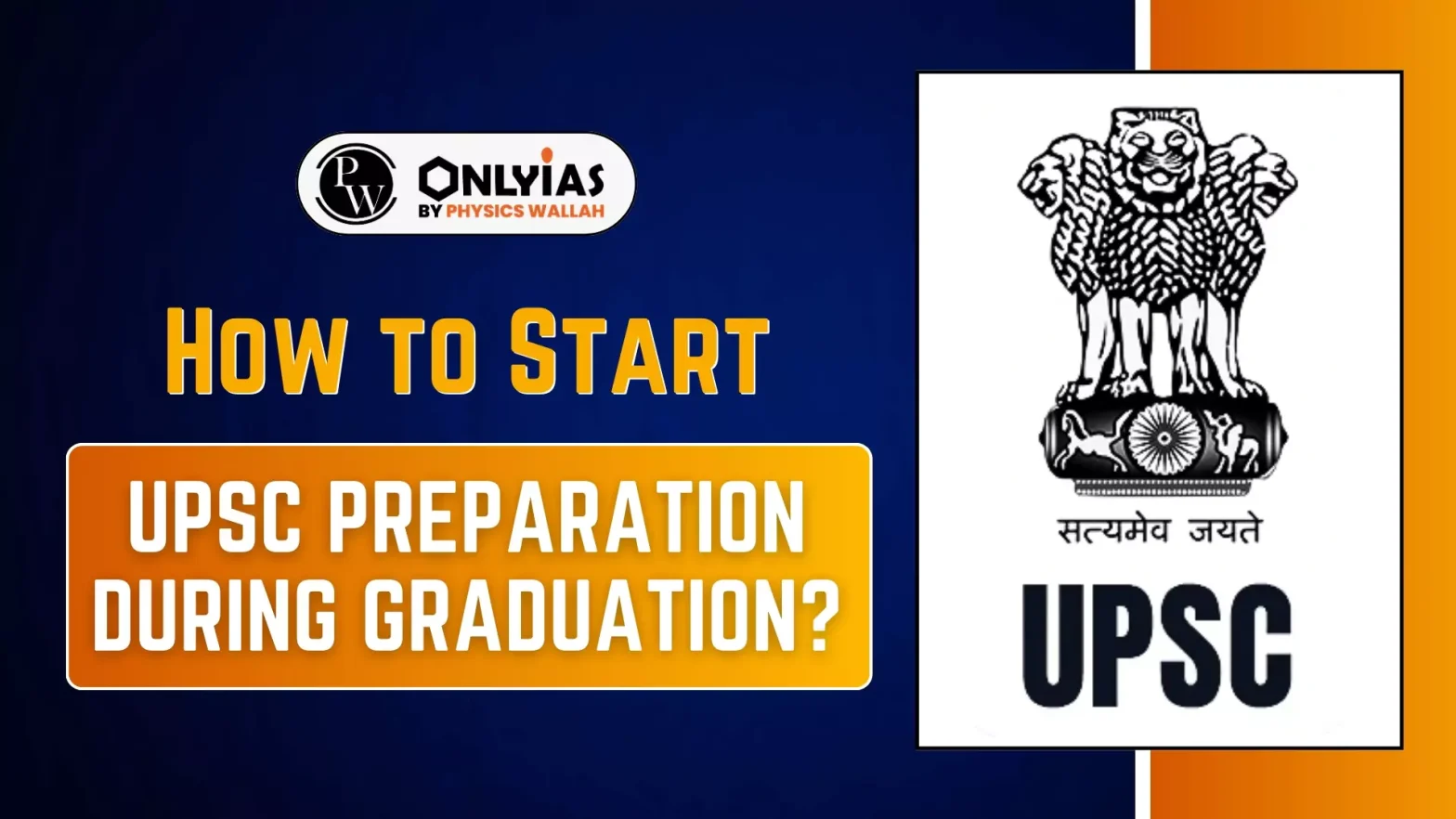How to Prepare for UPSC During Graduation? Explore the step-by-step guide on how to prepare for UPSC during graduation.

How to Start UPSC Preparation During Graduation: Preparing for the UPSC IAS exam during graduation is a smart strategy. It allows you to lay a strong foundation while balancing academic studies. Here’s a comprehensive plan on how to begin your UPSC preparation during graduation, ensuring you stay on track and make the most of your college years.
Starting your UPSC preparation during graduation can be a strategic move that sets you up for success. It’s essential to take a step-by-step approach to balance your college studies with UPSC prep. Begin by understanding the exam structure, manage your time efficiently, and build a strong foundation in General Studies. Check out the complete guide on how to start UPSC Preparation during graduation:
Before diving into UPSC preparation, it’s crucial to understand the UPSC IAS exam structure. The exam comprises three stages: Prelims, Mains, and Interview. Start by familiarizing yourself with the syllabus for both Prelims and Mains. This will help you identify which topics overlap with your graduation subjects and which require additional study.
Balancing college studies with UPSC preparation requires effective time management. Dedicate specific hours each day to UPSC preparation, ensuring you cover both your college subjects and the IAS preparation during graduation. Typically, two to three hours daily should be enough during the initial years, increasing gradually as you approach the final year.
General Studies (G.S.) forms the backbone of the UPSC syllabus. Start by covering G.S. syllabus per day to cover all the relevant topics comprehensively. Make daily class notes and practice MCQs, along with UPSC Mains questions, which will help reinforce your understanding.
The CSAT paper in the Prelims has been increasing in difficulty, so it’s essential to prepare well. Take CSAT classes, which should be included in your course. Practice regularly with the materials provided, and don’t hesitate to use the 24×7 Doubt Engine if you encounter any challenges.
Staying updated with current events is crucial for UPSC’s success. Weekly Current Affairs lectures are an excellent way to stay informed. Complement these lectures with regular reading of newspapers and monthly magazines like “Current Wallah.” This will ensure you have a solid grasp of national and international events.
Answer writing is a critical skill for the Mains exam. Begin early with Answer Writing practice that focuses on the essential points to include in your responses. Practice daily, using model answers as a guide, and attend regular doubt sessions to clarify any uncertainties.
Regular revision is key to retaining information. Utilize resources like “Udaan” for static quick revision for Prelims and “Prahaar Mains Wallah” for Mains preparation. Participate in regular tests to assess your progress and adjust your study plan accordingly.
Invest in quality study materials. Resources like the “UPSC Wallah” set of 24 G.S. comprehensive books, along with e-books, will be invaluable. These resources are tailored to cover the entire syllabus thoroughly, ensuring you are well-prepared for every stage of the exam.
Physics Wallah offers a comprehensive solution for those preparing for the UPSC IAS exam during college. Know how to prepare for UPSC IAS Exam during college with the help of Physics Wallah:
Enroll now in Sankalp 2026 (Hinglish) and take the first step towards your IAS dream while still in college!
| UPSC Exam-Related Articles | |
| UPSC Notification 2025 | UPSC 2025 Exam Date |
| When To Start Preparing For UPSC 2025? | UPSC Prelims Syllabus 2025 |
| UPSC Eligibility 2025 | One-Year Plan For UPSC 2025 |
Yes, preparing for UPSC during graduation is possible and advisable. It allows you to build a strong foundation and gradually cover the vast syllabus over time.
Create a structured daily routine, dedicating specific hours to UPSC preparation while balancing college studies. Start with 2-3 hours a day, increasing as you approach your final year.
Begin with General Studies (G.S.) subjects that overlap with your college curriculum. Attend live classes, take notes, and regularly revise.
While self-study is possible, joining coaching classes like those offered by Physics Wallah can provide structured guidance, resources, and support, making preparation more effective.
Regularly read newspapers, attend weekly Current Affairs lectures, and subscribe to monthly magazines like "Current Wallah" to stay informed on relevant topics.
Yes, if you fulfill the required eligibility criteria, then you can give UPSC while graduation.

<div class="new-fform">
</div>